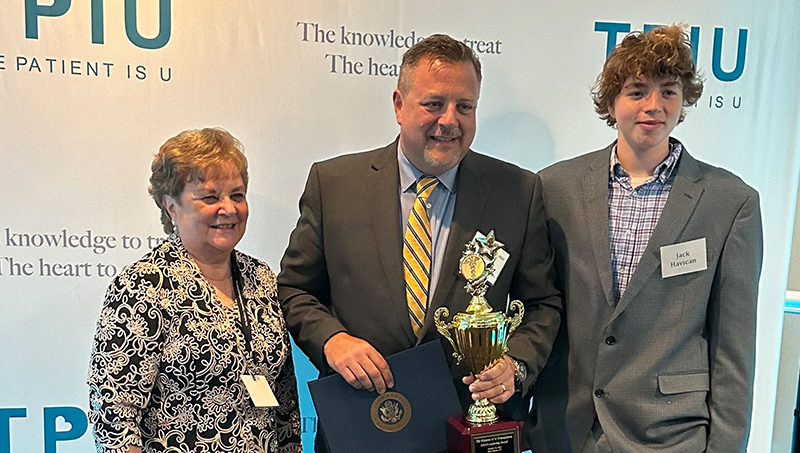Both the Doctor of Philosophy (Ph.D.) and Doctor of Health Sciences (DHSc) are doctoral degrees, the terminal degree in the field of health sciences. The goal of a Ph.D. program is to train students for careers in research and so Ph.D. curriculum is generally very methods and analysis oriented. The DHSc is an advanced professional degree which aims for students to develop advanced leadership and management skills. Graduates from both Ph.D. and DHSc programs can go on to careers in the public and private sectors, academia, and clinical settings. The DHSc degree also leads to a career in high-level administration, teaching, and applied research or practice, where advanced analytical and conceptual capabilities are essential to advance careers to top executive and academic appointments.
How many credits is the DHSc program?
The DHSc program is 45 credits.
Do I need a graduate degree to apply?
Yes.
How long does it take to complete the program?
Between 2-3 calendar years depending on full time or part time progression.
Is the program online or in-person?
The DHSc program is designed to be a flexible online asynchronous program for adult learners. However, there are two required in-person meetings, called ‘residencies’ where students interact with peers and instructors. Students earn course credit while at the residencies. The first residency is in late August at the beginning of the program for 2 days (weekend) and the second is in May between the first and second year for 3 days (weekdays). All week-to-week coursework will be asynchronous and online.
What are the two DHSc Concentrations?
The DHSc coursework prepares students to critically analyze ongoing challenges in the health sciences, with a focus on one of two select concentrations: educational leadership (EL) and healthcare leadership (HL). Those in the EL concentration are generally interested in pursuing or continuing their careers in higher education. EL concentration courses include Theories and Principles of Teaching and Learning in the Health Sciences, Curriculum Design and Development in the Health Sciences, Curriculum Assessment and Evaluation in the Health Sciences, and Evidence-Based Leadership in Health Sciences Education. Those in the HL concentration are generally interested in pursuing or continuing their careers in health administration or public health practice. HL concentration courses include Change Management in Healthcare Organizations, Quality Improvement in Healthcare Organizations, Population Health Management for Healthcare Leaders, and Health Informatics for Healthcare Leaders.
What classes are offered in this program?
For a list and description of DHSc courses, please visit here.
How does the doctoral thesis work?
DHSc students are expected to complete a culminating project which integrates knowledge and experience. The project can be clinical in nature (i.e., quality improvement), practical (i.e., course development), or research (quantitative, qualitative, or mixed methods). Students receive support in the form of 18 credits taken over three semesters as well as a doctoral thesis chair and committee members.
What type of writing sample are you looking for?
If you’ve completed an academic program within the last five years, you can submit a writing assignment from a course. Please make sure it’s an assignment that you are proud of and reflects your writing ability. Please also make sure it’s not a group project and only written by you. If you’ve been out of school for more than five years or prefer submitting a professional writing sample, please submit a written document from your job such as a memo, white paper, brief report, etc. There is no page length expectation or requirement for the writing sample.
What should I write about in my personal statement?
The DHSc Admissions Committee is looking for a 2-3 page, double-spaced statement that describes why you are interested in pursuing a doctoral degree, what attracts you to our DHSc program, and what you hope to do with the DHSc once you graduate. Please do not summarize information that is found in your resume/CV.
Can international students apply to the program?
Unfortunately, because of the online nature of the DHSc program, we are unable to legally enroll international students on the F-1 visa to this program. The use of B-2, ESTA, VWP, or other temporary visitors' visas for the required in-person residencies is not possible because these visas do not permit study toward degree attainment.
Who do I contact for more information?
For program-related questions, please contact Dr. Jill Moore at JCMoore@newhaven.edu. For questions related to the application process or information sessions, please contact the Office of Graduate Admissions at graduate@newhaven.edu.


